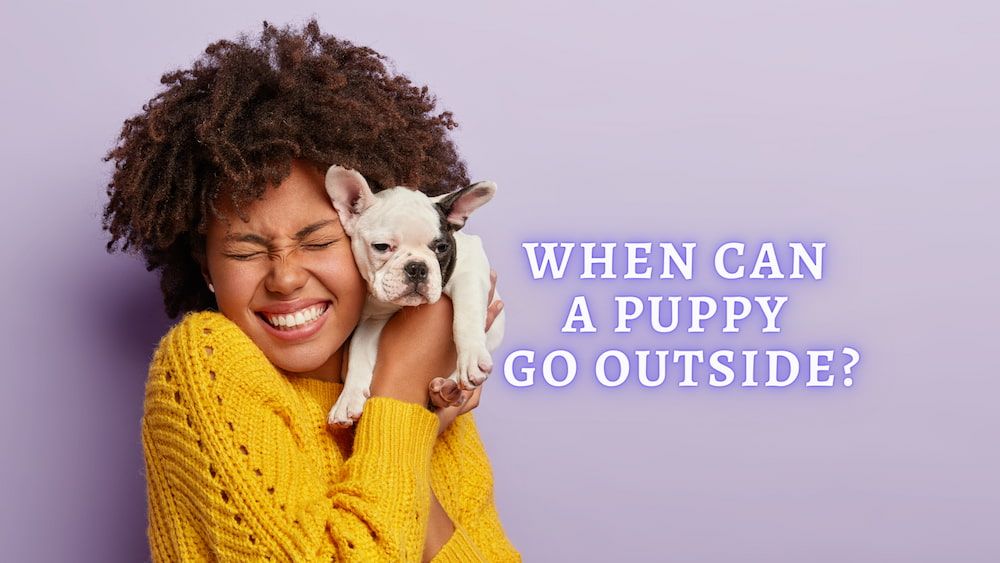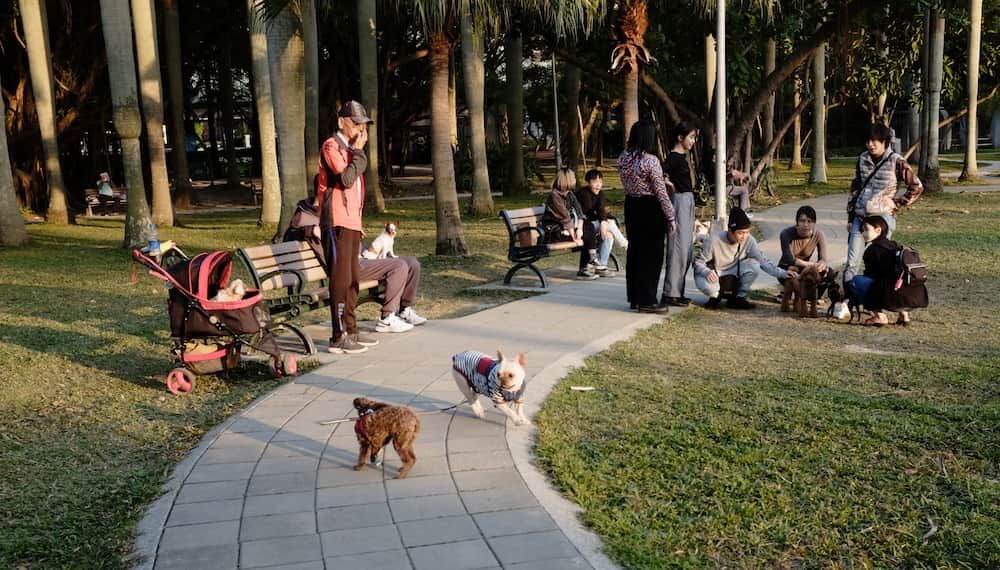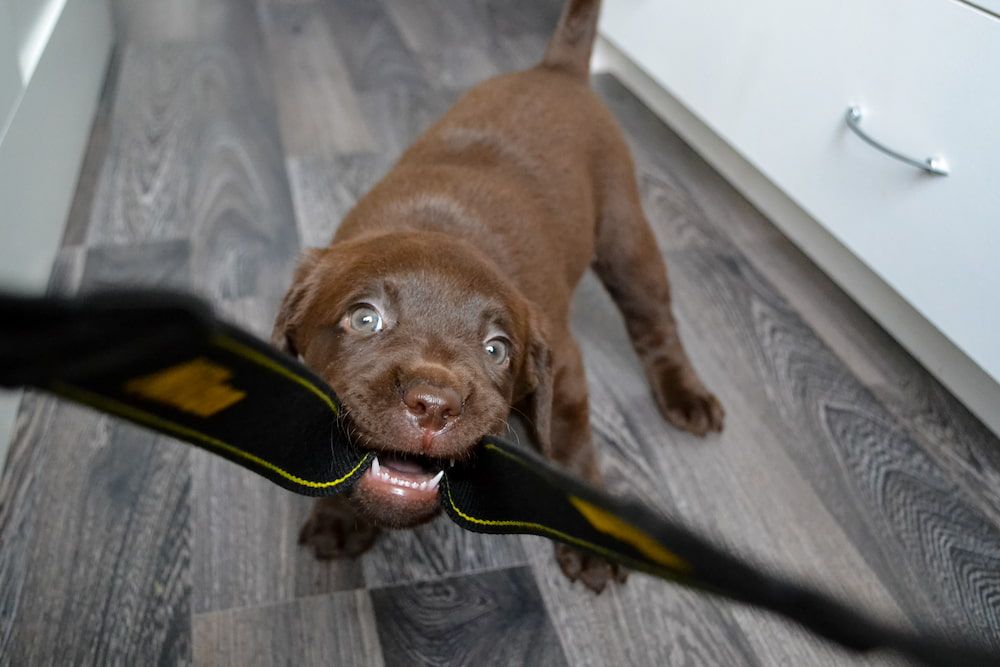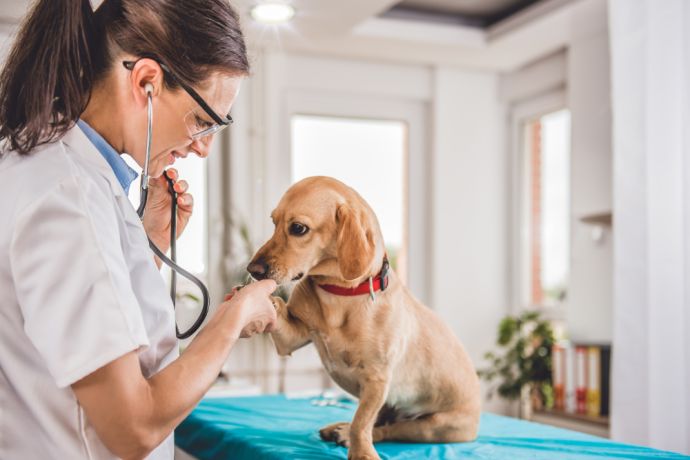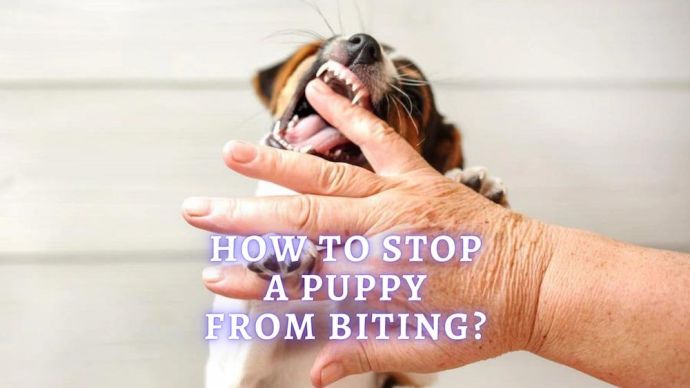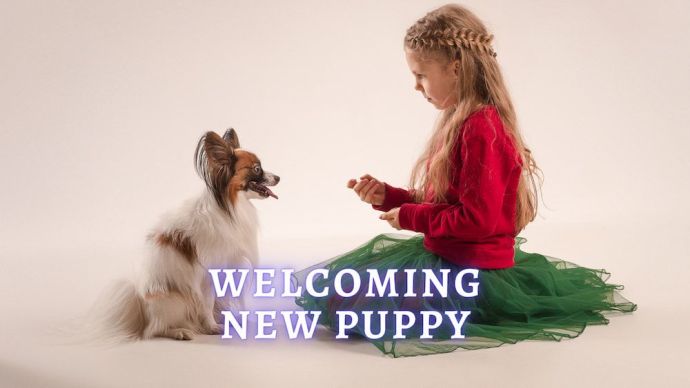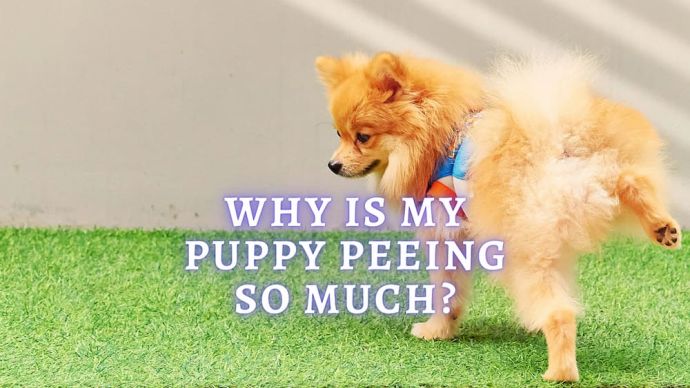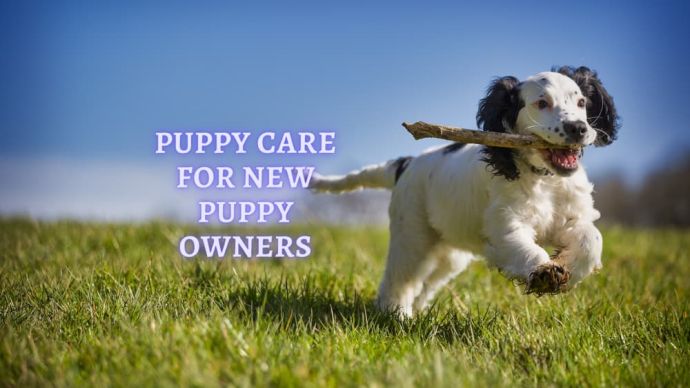When Can Puppies Go Outside? Vet Advice on New Puppy Vaccines, Potty Training, and Socialization
Written by:
Author: Dr. Linda Simon
Dr. Linda Simon is a veterinary surgeon working with seven years of experience. She is a fellow of the British Veterinary Association and specializing in animal medicine. Also, she has been the Woman magazine resident vet for the past two years and writes a regular column for them, focusing on pets and their health.
View all 30 articlesLearn about our editorial process and veterinary review board.
Viewed: 393
Updated on: 01/05/2022
As a new pet parent, you’ll undoubtedly have lots of questions about how to best care for your new bundle of fluff. One of the first things new dog owners wonder about is if they can bring their young puppy outdoors.
Read on to learn all about the potential risks (and benefits!) of bringing unvaccinated dogs outside into the great outdoors.
Can I take my young puppy out on the first day?
As soon as your little puppy is safe in your arms, you’ll have an urge to show them off to the world. New pups are adorable and you will probably want to take them to meet your neighbors and to explore the local area. However, if they have not had all of their puppy vaccines, it is important you stop and think.
In the early weeks, your puppy may be feeling a little overwhelmed. They are getting used to their new home and being away from their mother and siblings. Their immune system may be weakened from the stress, leaving them open to infections.
On the first day, it is safest to stick to your home. Your pup can use puppy pads to toilet or can be carried to a safe spot in the garden that no wild animals have access to. As puppies go wherever they please, be sure to use a lead or to stand over them, ensuring they won’t make a run for it! In these first few days, it is important you keep your puppy safe and calm.
READ MORE: New Puppy Owner Guide
When can you take your puppy outside to the yard?
Some people will have a very ‘puppy safe’ fenced yard that is not likely to pose any dangers to a puppy, whether they are vaccinated or not. [1] However, if your own yard is home to local wildlife, including rats and foxes, your puppy is at risk from potentially fatal infections such as Leptospirosis.
So, it is important you may a risk assessment of your yard. If there are rats who urinate on your lawn, it is vital you wait until your puppy is fully vaccinated before they can go out on it.
When can puppies go outside to dog parks?
The answer to this is open to debate, and even vets will disagree amongst themselves. To be as safe as possible, some experts advise waiting until 1-2 weeks after the second round of vaccinations to ensure dogs are fully protected. While this is the best way of preventing infectious disease, it is not good for a puppy’s social development.
The time before 16 weeks of age is a critical socialization period for a puppy. This is when they learn how to interpret the world around them. If a dog is not exposed to other people, animals, traffic and parks, they can become anxious and fearful of these situations. It is crucial to let them have positive socialization experiences from a young age. [3]
Some owners feel it is worth taking the risk of bringing them to dog parks or other public spaces but will carry them in their arms or in a puppy-safe backpack. This is a great compromise that ensures the best of both worlds.
Wrapping your puppy up in cotton wool to keep them safe from infection could actually do more harm than good. These unsocialized puppies often are the ones to go on to develop serious behavioral issues.
Are there any other ‘safe’ ways for dog owners to help socialize an unvaccinated puppy?
Absolutely, yes.
Most dog owners are very keen to get their puppy meeting other dogs asap.
As discussed above, bringing your pup to places like dog parks in your arms is a great idea. You can also introduce them to older dogs who are known to be healthy and fully vaccinated. Ideally, these would be well-behaved, good-tempered dogs who are used to being around puppies. This way, it is more likely that interactions will be positive and your puppy leaves the encounter feeling happy and confident.
A puppy class is a great idea, especially one that is run by your local vet. This way, your puppy can get used to being around other dogs and to being in the veterinary clinic. Most classes allow unvaccinated puppies to attend as long as they are in good health, and however, some request that the puppies have had their first vaccinations.
It is very important that you avoid contact with any dog who is unwell when trying to socialize your puppy. These dogs are a risk to your puppy, so stay well away, especially when they have not had all of their vaccinations. If your puppy were to encounter an infected dog, they would be at high risk of becoming unwell and could even pass away.
Similarly, if a dog you’re considering meeting up with is of unknown vaccination status, it is best to pass up the playdate until your pet is vaccinated.
READ MORE: How to Socialize a Puppy with other Dogs?
When do puppies need to be vaccinated?
For most, their first vaccine is given between 6 and 8 weeks of age while still with the breeder. Two to four weeks later, it is time for the second vaccination. These vaccines protect dogs against infectious canine diseases, including Parvovirus, Distemper and Leptospirosis.
Those who breastfeed from their mother will consume maternal antibodies which offer some protection from infectious diseases. However, as they stop nursing, their antibodies wane and they are highly vulnerable to infections. We aim to vaccinate them at this time, to ensure their immunity stays strong.
READ MORE: What Vaccines Do Puppies Need?
When does puppy need to be microchipped?
It is a legal requirement for your pup to be microchipped in many countries, and veterinary advice is to do this from eight weeks of age. This is important so your pup can be reunited with you if they are ever lost or stolen. Once they start exploring the big, wide world, you’ll see just how easy it is for them to disappear in a matter of seconds.
A puppy parent may worry about the size of the needle and chip, especially in smaller breeds like Chihuahuas or Yorkies. However, the risks are negligible and the benefits are undeniable.
RELATED: Ways to Find a Lost Dog
How can I exercise my puppy if they can’t go outside?
This is a great question! In the first few weeks of your puppy being with you, it is vital they are exercised a lot. While it may seem odd, this can be achieved indoors.
Puppies, even giant breeds, are relatively small, and they don’t need long walks for the first few weeks while they are with you. Instead, we can encourage them to play with toys, sniff out and find treats, chase us and even complete mini indoor agility courses.
Those with safe back yards can bring their dog on lead walks in the garden. For those who don’t have this privilege, we can still go for short indoor ‘walks’ so puppy gets used to the lead and understands what is expected of them when it comes time for the real deal in the outside world.
How can I toilet train my puppy if they can’t go outside?
This is a fair question. To avoid your new arrival staining your furniture and carpets and making your house smell rather unpleasant, you will want them to be toilet trained quickly.
Most owners use their yard for toilet training, bringing their dog to the same spot and rewarding them when they go to the potty. However, outdoor access is not an essential part of toilet training. We can use puppy pads in the same way as our yard.
After every meal, drink, and nap, we must immediately bring our puppy to their pee pad. Each time they poop or pee, they get rewarded with verbal praise and a tasty treat. If we spot them posturing to urinate, sniffing the ground or circling, we immediately carry them to that puppy pad.
As they get older, we can move the pee pad closer and closer to the door. Once old enough, we can move the pad outside and then eventually get rid of it altogether.
Though most dogs owners dread house training, the good news is that most puppies take to toilet training very well and are fully trained in a matter of months.
How to prepare puppy for going outside?
From a veterinary perspective, pups must be up to date with their worming and external parasite prevention before going outside. Vaccines won’t protect against parasites, so ensure this part of their preventative health care is not ignored.
As mentioned, practice leash walking indoors, working on commands like ‘heel’ and ‘sit’. This can start even before your pup’s first round of vaccines, as they don’t need any protection from infection when indoors.
Build confidence and strengthen your bond with lots of mini-training sessions, using positive reward-based training. Both you and your puppy should have a strong relationship before venturing outside together.
Your new puppy may struggle a little when first leaving the safe environment that is their home. Start off with short trips from the door to the front gate or around the front yard.
For the first expeditions, we can initially take some extra precautions by sticking close to home and keeping walks nice and short.
The Take Home Message
So, the answer to ‘When can puppies go outside?’ is not as straightforward as you may have first hoped.
After their first vaccinations, puppies have minimal immunity and it is still not advised you take your puppy outside for walks just yet. Rather, provide access to the outdoors in a safe manner. You may choose to take them out while holding them or when they are safely inside a doggy backpack or buggy.
Even after their second vaccinations, we should still wait a week before allowing outdoor walks and contact with other puppies and dogs.
Frequently Asked Questions
Can I take my 8-week old puppy outside?
At 8 weeks old, a puppy may have had no vaccines or just their first vaccine. At this stage, they are at high risk from other dogs, local wildlife and bodies of water that may be contaminated with rat urine. It is best to stay away from public areas. For those with safe yards, their puppy can go outside when supervised.
Can I take my 10-week old puppy outside?
Some puppies may have completed their vaccine course by the time they are 10 weeks old. However, it is unlikely their immune system has had time to develop a strong immune response [2], and this is because we need to wait 1-2 weeks after the second vaccine before this occurs.
It is best to hold your puppy off the ground when bringing them outside until at least a week after their second vaccination.
If there are other dogs about, only allow them to interact if you know the adult dog is up to date with their vaccines. Owners and dog walkers should know to keep the dog at a safe distance unless you are happy for them to meet.
Can I take my puppy outside to pee before vaccinations?
Before a puppy has had any vaccinations, they are at high risk of becoming unwell if let outdoors, and this is regardless of their age. However, it is safe to let them go pee outside if you only bring them to spots where dogs and wildlife have no access.
Many pet owners dislike the idea of letting their puppy go to the toilet inside, even if on puppy pads. For them, a backyard may be a good compromise when it comes to potty time.
It is best to ensure the area is completely secure and to have your dog on a lead at all times, especially if not yet vaccinated.
When very young, puppies are less able to cope with cold or wet weather. If it is winter, keep outdoors sessions short and dry your pup thoroughly when back inside.
Article sources:
- “Your Complete Guide to First-Year Puppy Vaccinations.” AKC, akc.org/expert-advice/health/puppy-shots-complete-guide/.
- Pereira, Maria. “Development of Dog Immune System: From in Uterus to Elderly.” PubMed Central (PMC), 1 Dec. 2019, ncbi.nlm.nih.gov/pmc/articles/PMC6958461/.
- Brister, Jacqueline. “Importance of Socializing Puppies and Kittens.” Veterinary Partner, veterinarypartner.vin.com/default.aspx?pid=19239&id=8941891.
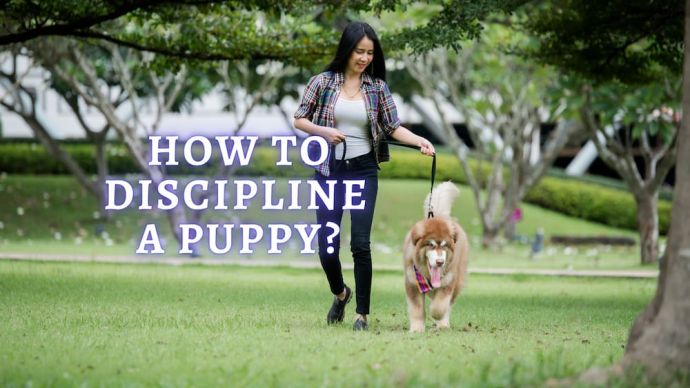 Puppy Care How to Discipline a Puppy? Strategies to Teach Your Puppy Proper Behavior
Puppy Care How to Discipline a Puppy? Strategies to Teach Your Puppy Proper Behavior - 158
- 0
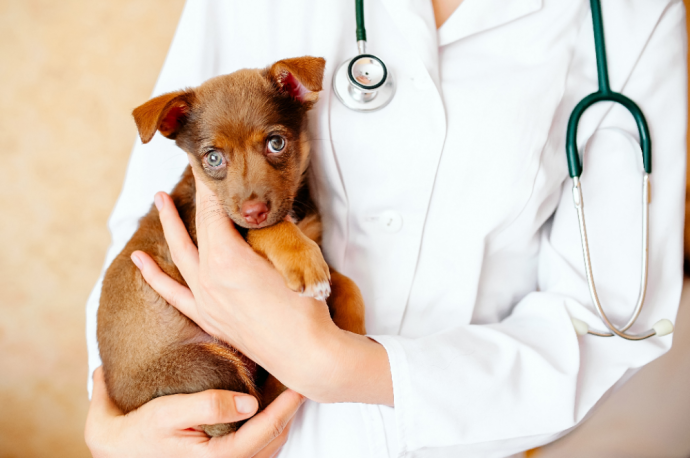 Dog Veterinary Tips Sick Puppy 101: How to know if your Puppy is Sick? (Vet Advice)
Dog Veterinary Tips Sick Puppy 101: How to know if your Puppy is Sick? (Vet Advice) - 1396
- 0
 Dog Veterinary Tips Why is my Dog throwing up: Causes and Preventing (Veterinary Advice)
Dog Veterinary Tips Why is my Dog throwing up: Causes and Preventing (Veterinary Advice) - 21800
- 5
 Dog Care My Dog Keeps Scratching His Mouth: Reasons Why Your Dog Scratching Face
Dog Care My Dog Keeps Scratching His Mouth: Reasons Why Your Dog Scratching Face - 17168
- 1
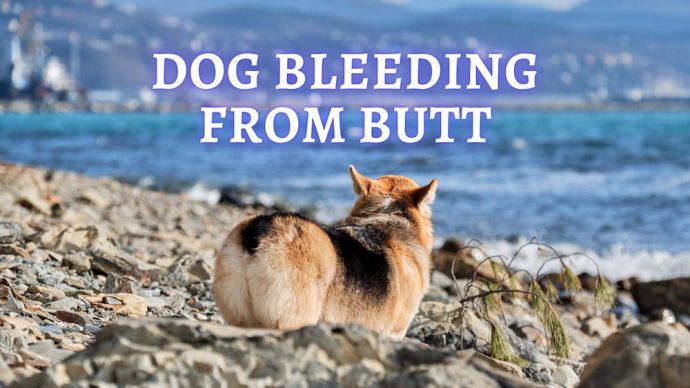 Dog Care Why Is My Dog Bleeding From Its Butt? Causes and treatment of rectal bleeding in the dog
Dog Care Why Is My Dog Bleeding From Its Butt? Causes and treatment of rectal bleeding in the dog - 15112
- 0









